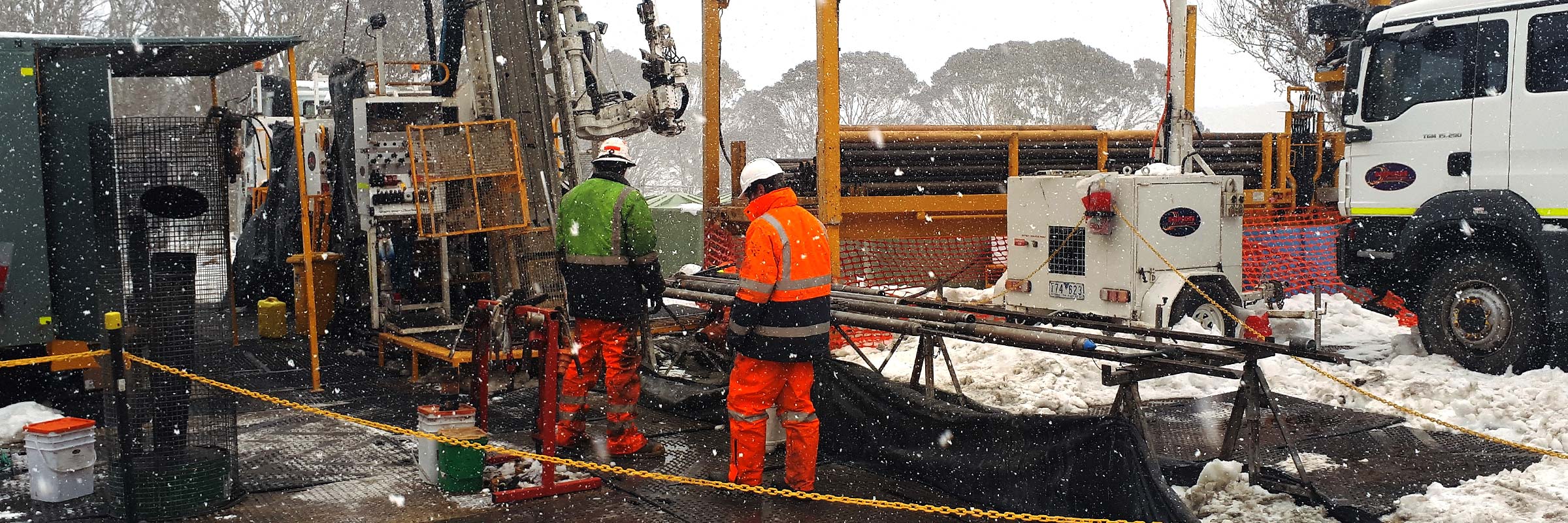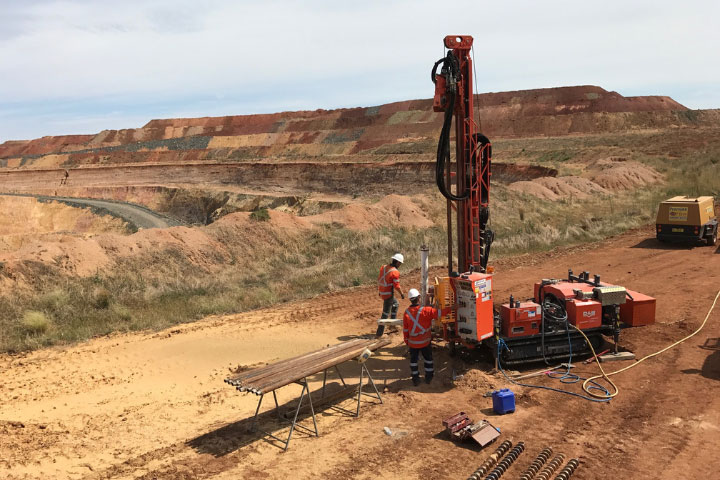Leading Geotechnical Companies in South Africa: Who You Must Know
Leading Geotechnical Companies in South Africa: Who You Must Know
Blog Article
The Importance of Geotechnical Engineering in Addressing Environmental Challenges and Enhancing Construction Safety
Geotechnical engineering offers as a keystone in the junction of ecological stewardship and building security, supplying critical understandings right into the habits of soil and rock under various problems. This technique not just addresses pressing environmental challenges such as dirt disintegration and groundwater protection but additionally boosts the toughness of infrastructure against natural risks. By executing strategic website investigations and tailored reduction steps, geotechnical engineers play an essential duty in protecting both human lives and ecological honesty. Yet, the complexities of these challenges elevate crucial questions concerning the future direction of this area and its ramifications for sustainable growth.

Duty of Geotechnical Engineering
Geotechnical design plays an essential duty in the design and building of infrastructure by addressing the habits of dirt and rock products under numerous problems. This area of engineering is necessary for comprehending the interaction between frameworks and the ground, that includes figuring out the load-bearing capability of soil, assessing security, and anticipating prospective settlement or failing.
Geotechnical engineers are responsible for conducting website examinations, which include sampling and screening soil and rock to gather information on their physical and chemical homes. This information is essential for creating foundations, preserving walls, and various other earth-retaining structures that ensure safety and security and durability. Furthermore, geotechnical design informs the option of ideal building and construction techniques and products, thus minimizing dangers connected with soil behavior.
Moreover, the integration of geotechnical engineering concepts right into urban preparation and ecological administration is important for resolving challenges such as ground contamination and groundwater monitoring. By understanding geotechnical elements, designers can establish sustainable services that boost the resilience of infrastructure versus all-natural threats, while also promoting ecological stewardship. Ultimately, the role of geotechnical engineering is vital for accomplishing secure, durable, and ecologically mindful building and construction techniques.
Soil Disintegration Mitigation
Soil erosion positions a considerable hazard to both ecological stability and framework honesty, affecting approximately 24 billion lots of abundant dirt lost yearly worldwide. This phenomenon is worsened by aspects such as logging, urbanization, and inadequate farming methods. Geotechnical design plays an essential duty in creating reliable dirt erosion reduction techniques that guard both the setting and construction jobs.
One approach requires the application of erosion control methods such as vegetation planting, which supports soil with root systems. Additionally, the building of keeping balconies and walls can successfully decrease surface drainage and shield prone areas from disintegration. Correct water drainage style is also crucial; it minimizes water buildup and directs excess drainage far from vital structures.
In addition, geotechnical designers employ soil stabilization strategies, such as the application of geotextiles and naturally degradable mats, to boost soil communication and stop degradation - geotechnical engineer description. Regular tracking and analysis of erosion-prone sites enable prompt interventions, making certain long-lasting sustainability. By incorporating these methods, geotechnical engineering not only mitigates the influences of soil disintegration but likewise adds to the durability of framework versus ecological difficulties, inevitably fostering a more secure and more sustainable constructed environment
Groundwater Security Approaches
Groundwater serves as an essential resource for drinking water, farming, and industrial processes, making its defense important for ecological sustainability and public wellness. Effective groundwater protection approaches are crucial in alleviating contamination threats and guaranteeing the More Bonuses durability of this source.

Normal monitoring of groundwater top quality is additionally crucial, allowing early discovery of contamination sources and facilitating prompt remediation initiatives. Employing innovative modern technologies, such as geophysical surveys and remote noticing, aids in determining potential dangers to groundwater reserves.
Moreover, public education and stakeholder engagement are crucial, promoting area support for groundwater defense initiatives. geotechnical specialist. By incorporating regulative steps, technical advancements, and neighborhood participation, we can develop an extensive framework that safeguards groundwater resources next while promoting lasting growth and construction methods
Landslide Risk Administration
Landslides position substantial threats to both human security and facilities, making reliable threat management techniques necessary. Geotechnical engineering plays an important function in recognizing, analyzing, and mitigating landslide risks. An extensive understanding of slope stability, dirt technicians, and hydrology is essential for creating effective risk management plans.
The very first step in landslide danger administration includes complete website examinations, that include geological mapping and soil testing. These investigations assist engineers assess the potential for landslides by identifying crucial elements such as incline angles, soil composition, and water web content. Making use of innovative modern technologies such as remote noticing and geophysical surveys can improve the accuracy of these assessments.
Once threats are recognized, proper mitigation measures can be implemented. These might consist of engineering solutions such as retaining wall surfaces, drain systems, and slope stablizing strategies. Keeping an eye on systems ought to be developed to find indications of ground activity and adjustments in water levels, permitting for positive treatments.

Enhancing Building And Construction Safety And Security
Building and construction websites usually provide a myriad of threats that can jeopardize employee security and job stability. Geotechnical engineering plays a vital function in boosting building and construction safety and security by giving crucial understandings into subsurface conditions. Through comprehensive dirt and rock analysis, geotechnical engineers can identify possible dangers, such as soil instability, groundwater issues, and seismic vulnerabilities, which might compromise the safety of building and construction tasks.
Implementing geotechnical services, such as proper structure design and the usage of retaining structures, minimizes these risks dramatically. These solutions not only guarantee the security of the structures being constructed but likewise create a much safer working atmosphere for building workers.
In addition, fostering a culture of security via training and adherence to developed safety and security protocols further enhances building site safety and security. By incorporating geotechnical proficiency into the planning and execution phases, construction projects can achieve greater safety and security standards, ultimately protecting workers and ensuring effective task conclusion.
Verdict
In verdict, geotechnical engineering offers as an essential self-control in tackling ecological challenges and advertising construction safety and security. Through reliable dirt disintegration mitigation, groundwater defense techniques, and landslide threat administration, geotechnical designers contribute to the advancement of resistant facilities.
Geotechnical engineering offers as a cornerstone in the crossway of ecological stewardship and construction safety and security, providing important insights into the actions of soil and rock under different problems. Geotechnical design informs the choice of ideal construction techniques and products, thereby lessening threats associated with soil habits.
Geotechnical design plays a crucial role in establishing efficient dirt erosion mitigation techniques that secure both the setting and construction projects.
Furthermore, geotechnical engineers utilize dirt stablizing strategies, such as the application of geotextiles and biodegradable mats, from this source to enhance soil cohesion and avoid deterioration. With detailed dirt and rock evaluation, geotechnical designers can recognize possible threats, such as dirt instability, groundwater concerns, and seismic susceptabilities, which might compromise the safety and security of construction tasks.
Report this page